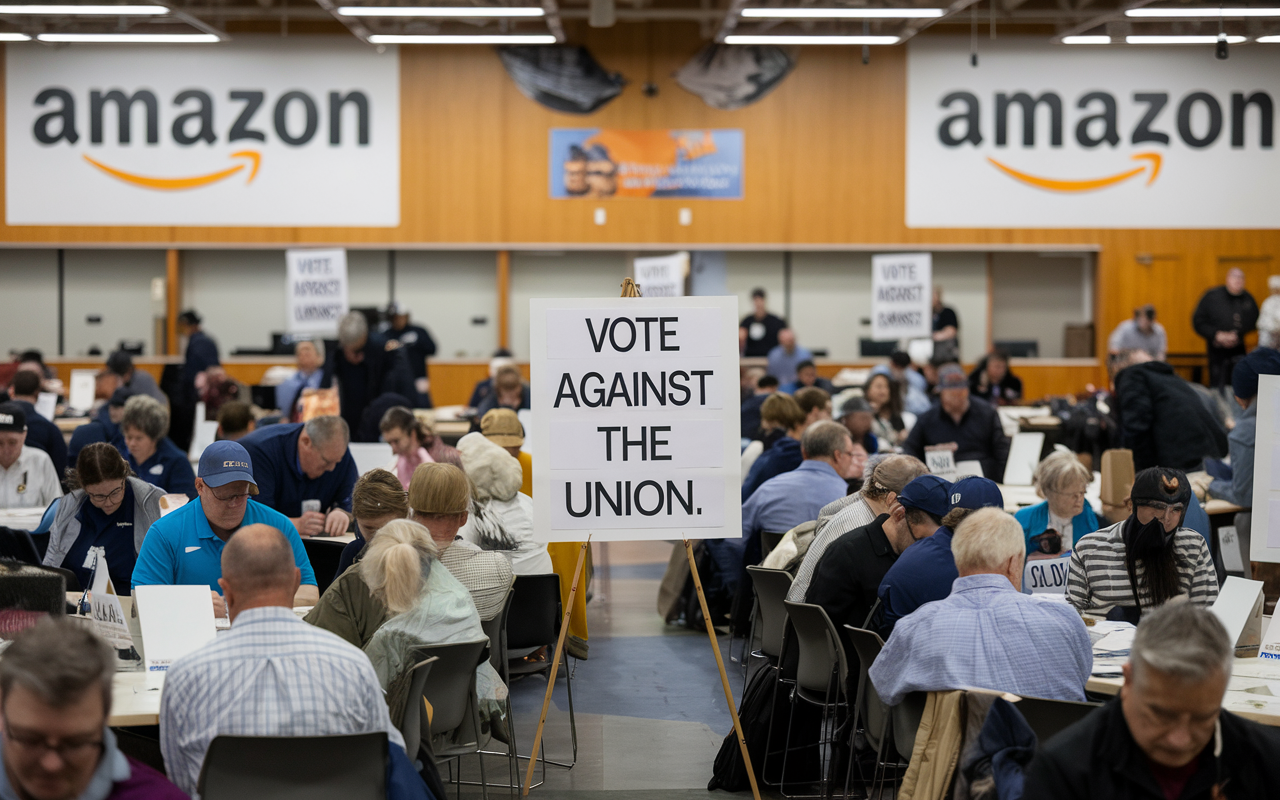Amazon Workers in North Carolina Vote Against Unionization: What Does This Mean? 🤔🏭
In a significant development in the realm of labor relations, workers at an Amazon warehouse in Garner, North Carolina have voted against unionizing. With the results announced on February 15, 2025, the election saw 3,276 ballots cast, where only 25.3% favored unionization while a striking 74.7% opposed it. 📊
According to the Carolina Amazonians United for Solidarity and Empowerment (CAUSE), the group advocating for the union, they attributed the outcome to “Amazon’s willingness to break the law,” alleging intimidation tactics employed by the company to sway voter opinion. In contrast, Amazon spokesperson Eileen Hards asserted that the company had adhered to all regulations, emphasizing satisfaction that workers opted to maintain a direct relationship with the organization. 🏢
A Divided Workforce🗳️
This decision reflects deeper issues within Amazon workplaces. While some Amazon warehouse workers have successfully organized—such as those in Staten Island and a Whole Foods location in Philadelphia—others showcase a contrasting narrative. This polarized dynamic raises questions about the current state and future of labor organization in large corporations.
Unionization is often seen as a way for workers to strengthen their voices and improve working conditions. The high opposition rate among Amazon employees in this case suggests they may feel differently about the union's approach or the potential benefits it might bring.
The Broader Implications 🔍
The ramifications of this vote extend beyond the individual warehouse. As Amazon continues to face scrutiny over labor practices, this event could spark renewed discussions about workers' rights and corporate responsibility across various industries. Moreover, it brings to light the fine balance companies must maintain between employee satisfaction and operational regulations.
Why does this matter? 🤷♂️
- Future Organizing Efforts: This vote may deter future unionizing attempts not just at Amazon but within other corporations facing similar workforce dynamics.
- Corporate Accountability: It raises questions about Amazon’s labor practices and corporate responses to organizing efforts.
- Worker Sentiment: Understanding the employees' concerns and sentiments around unionization is vital for improving workplace conditions.
The results are pending certification by the National Labor Relations Board (NLRB), creating a lingering tension in a critical dialogue surrounding labor relations.
In conclusion, while the rejection of unionization at the Garner facility may feel like a victory for Amazon, the reality is more complicated. The continuing struggle between corporate giants and labor rights advocates is likely to evolve, underscoring the importance of dialogue and understanding.
What are your thoughts on unionization in large corporations? Should Amazon’s practices change in response to these events? Let us know in the comments below! 💬👇
#Amazon #LaborRelations #Unionization #WorkerRights #CorporateResponsibility

More Stories
Meta’s AR Ambitions and AI Safety: Insights from the Equity Podcast
Insight Partners Data Breach: A Wake-Up Call for Cybersecurity Awareness
Lovable’s Ascendancy: Anton Osika at TechCrunch Disrupt 2025